In this blog post, we’ll explore a new GUMU enhancement that introduces a “Create Integration Stats” checkbox in the Entity Mapping Header. This feature provides users with the option to manage the generation of records in the Integration_Statistics__c object during the import routine sync.
Since these records are generated as part of the sync process, they can accumulate over time and potentially exceed Salesforce’s storage capacity. With this new feature, users can more effectively manage their storage, prevent performance degradation, and save on costs related to excessive data storage.
Create Integration Stats Checkbox in the Entity Mapping Header
Here’s how you can utilize the “Create Integration Stats” option in the Entity Mapping Header. Follow the steps below:
- Login to Salesforce.
- Navigate to the App Launcher in Salesforce.
- Click on the “GUMU Settings” from the app options.
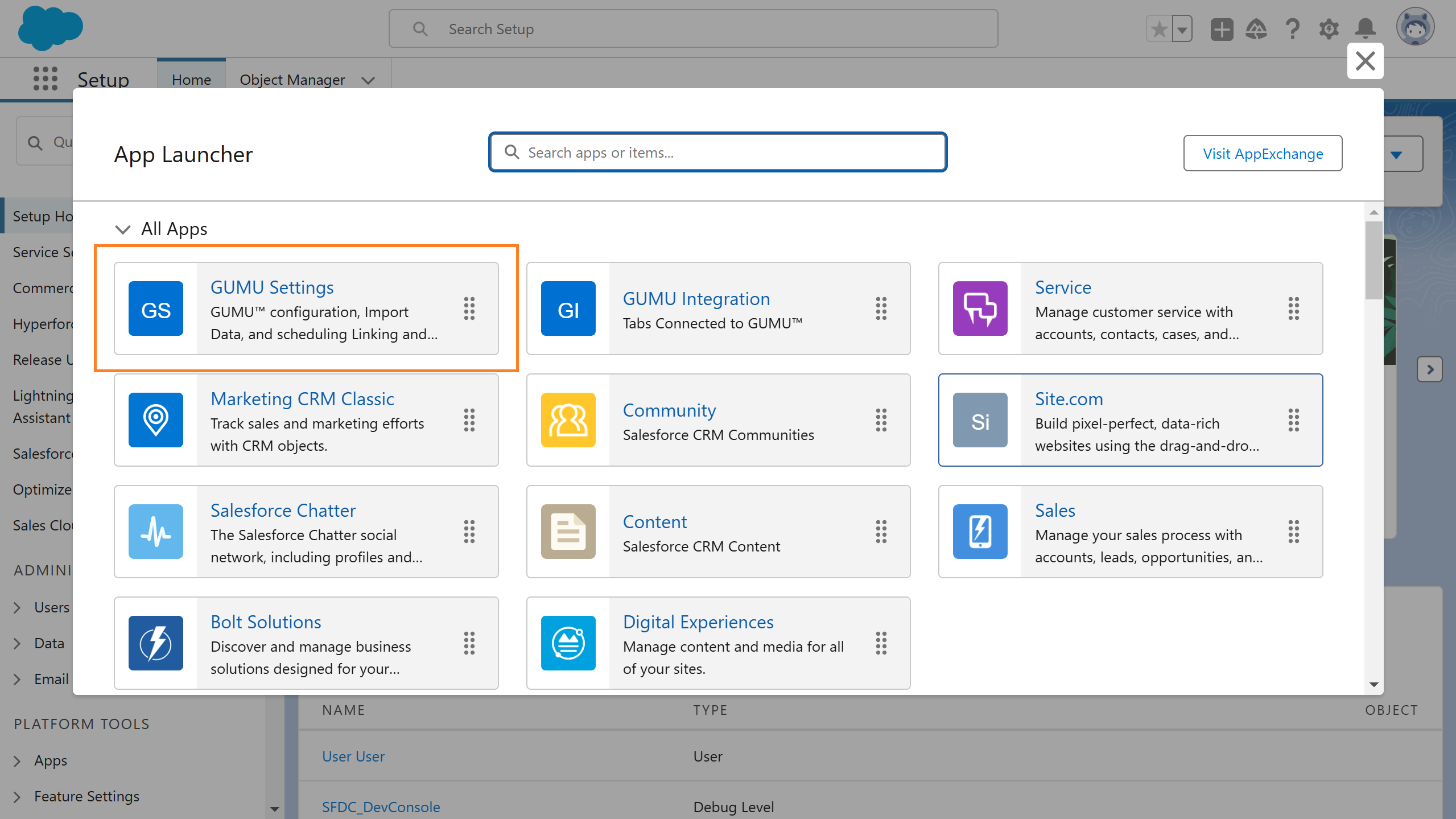
- Access the “Entity Mapping/Import” tab in the GUMU Settings.
- Click on the “Edit Mapping” action button to view the checkbox in the Entity Mapping Header.
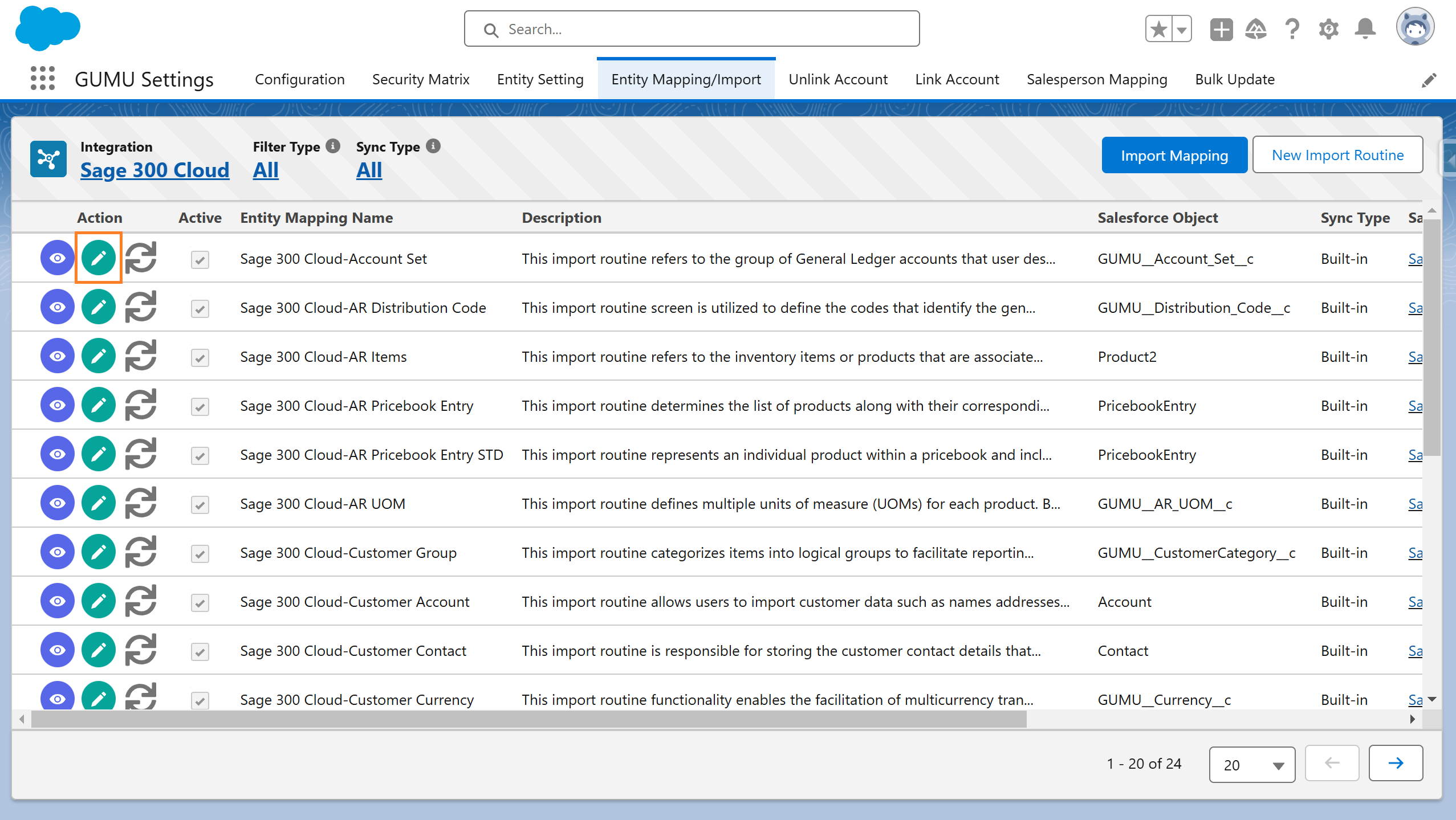
- The “Create Integration Stats” checkbox will be displayed in the Optional Setup section under the Header tab.
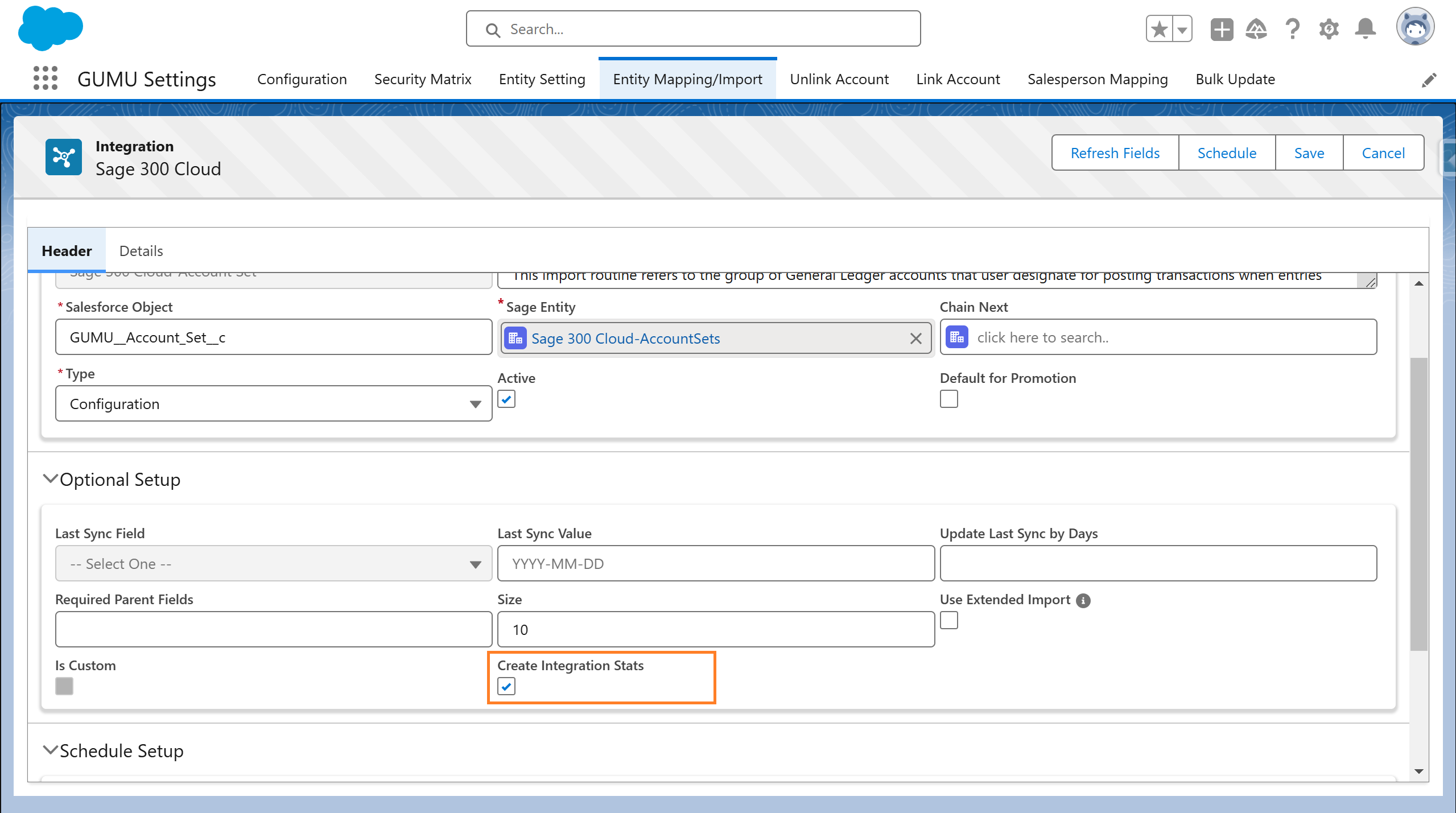
- Click on the “Create Integration Stats” checkbox to enable it and then click on Save.
- To run the synchronization process for the import routine. Click on the Sync Now button.
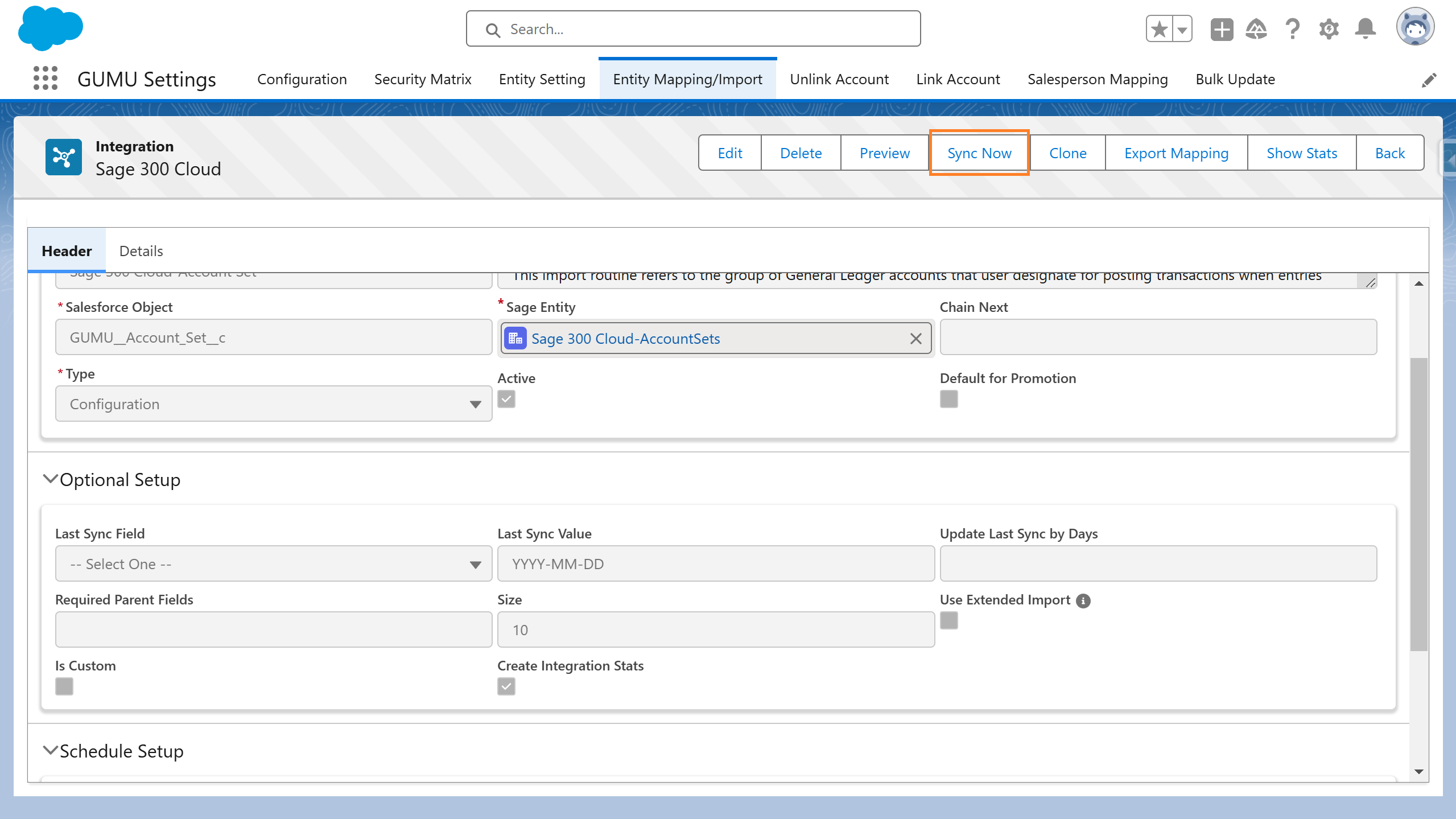
- Records will be generated only if the “Create Integration Stats” checkbox is checked before clicking the sync button. If it’s not checked, no records will be generated.
- To track the creation of Integration Statistics records, go to the App Launcher and select Reports.
- In the Reports tab, click New Report.
- Select the report type as Integration Statistics and click Start Report.
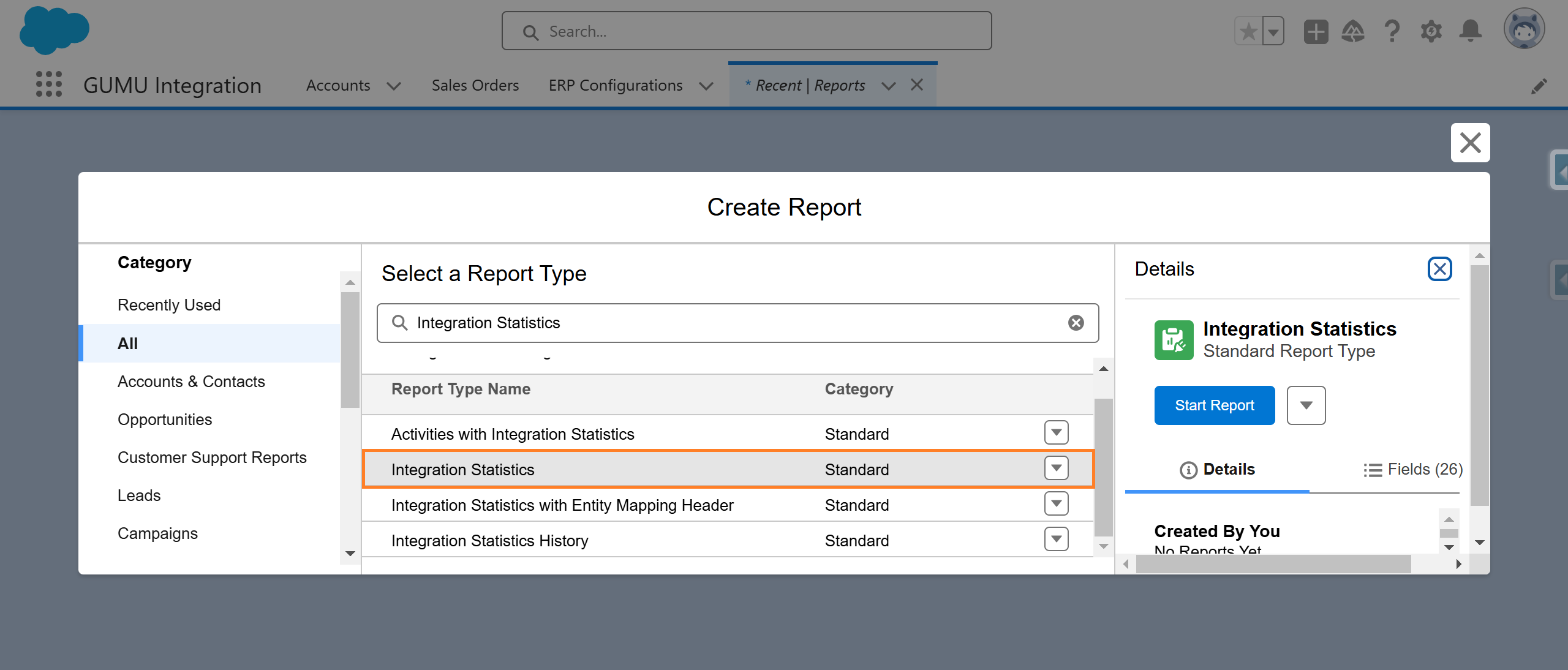
- Add the desired columns to the report. Click Save & Run to view the records.
- Using the new GUMU™ “Create Integration Stats” checkbox feature, users can choose to track the records created during the import sync process and view or manage them in Salesforce reports and dashboards.
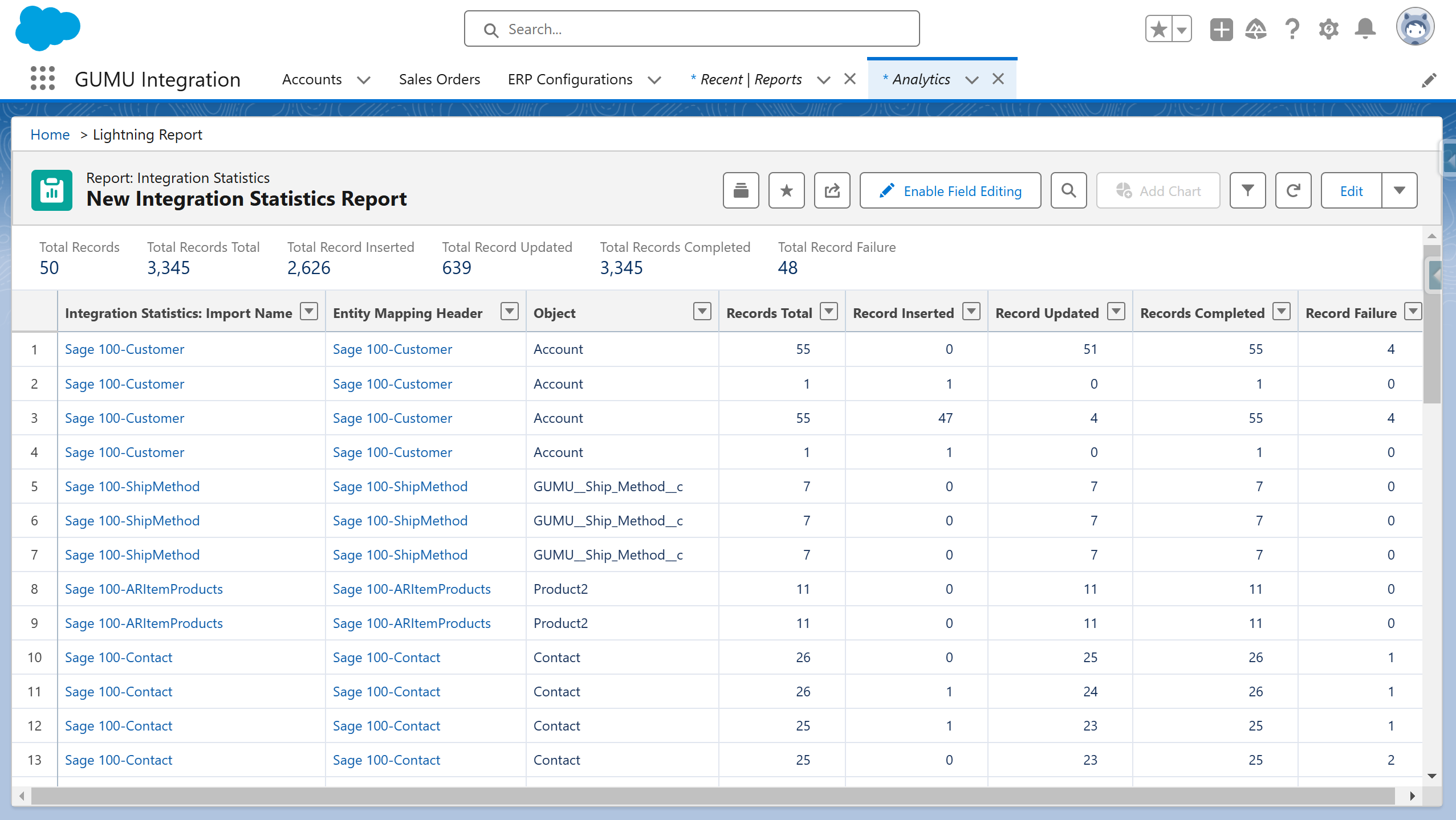
By following the steps outlined in this blog, you will learn how to use the new “Create Integration Stats” checkbox in the Entity Mapping Header.
If you still have queries or any related problems, don’t hesitate to contact us at salesforce@greytrix.com. More details about the integration product are available on our website and Salesforce AppExchange.
We hope you may find this blog resourceful and helpful. However, if you still have concerns and need more help, please contact us at salesforce@greytrix.com.
About Us
Greytrix – a globally recognized and one of the oldest Sage Development Partner and a Salesforce Product development partner offers a wide variety of integration products and services to the end users as well as to the Partners and Sage PSG across the globe. We offer Consultation, Configuration, Training and support services in out-of-the-box functionality as well as customizations to incorporate custom business rules and functionalities that require apex code incorporation into the Salesforce platform.
Greytrix has some unique solutions for Cloud CRM such as Salesforce Sage integration for Sage X3, Sage 100 and Sage 300 (Sage Accpac). We also offer best-in-class Cloud CRM Salesforce customization and development services along with services such as Salesforce Data Migration, Integrated App development, Custom App development and Technical Support business partners and end users.
Salesforce Cloud CRM integration offered by Greytrix works with Lightning web components and supports standard opportunity workflow. Greytrix GUMU™ integration for Sage ERP – Salesforce is a 5-star rated app listed on Salesforce AppExchange.
The GUMU™ Cloud framework by Greytrix forms the backbone of cloud integrations that are managed in real-time for processing and execution of application programs at the click of a button.
For more information on our Salesforce products and services, contact us at salesforce@greytrix.com. We will be glad to assist you.
Related Posts
- Creation of Default Entities and Mappings using GUMU’s New Lightning Interface
- GUMU™ Salesforce Tricks and Tips – about the use of Filter in Import Functionality
- GUMU™ Salesforce Tricks and Tips – about creating Relationship between Entities Import Routine
- New GUMU Chain Next Functionality for Entity Mapping/Import in GUMU™ Settings for Integration

